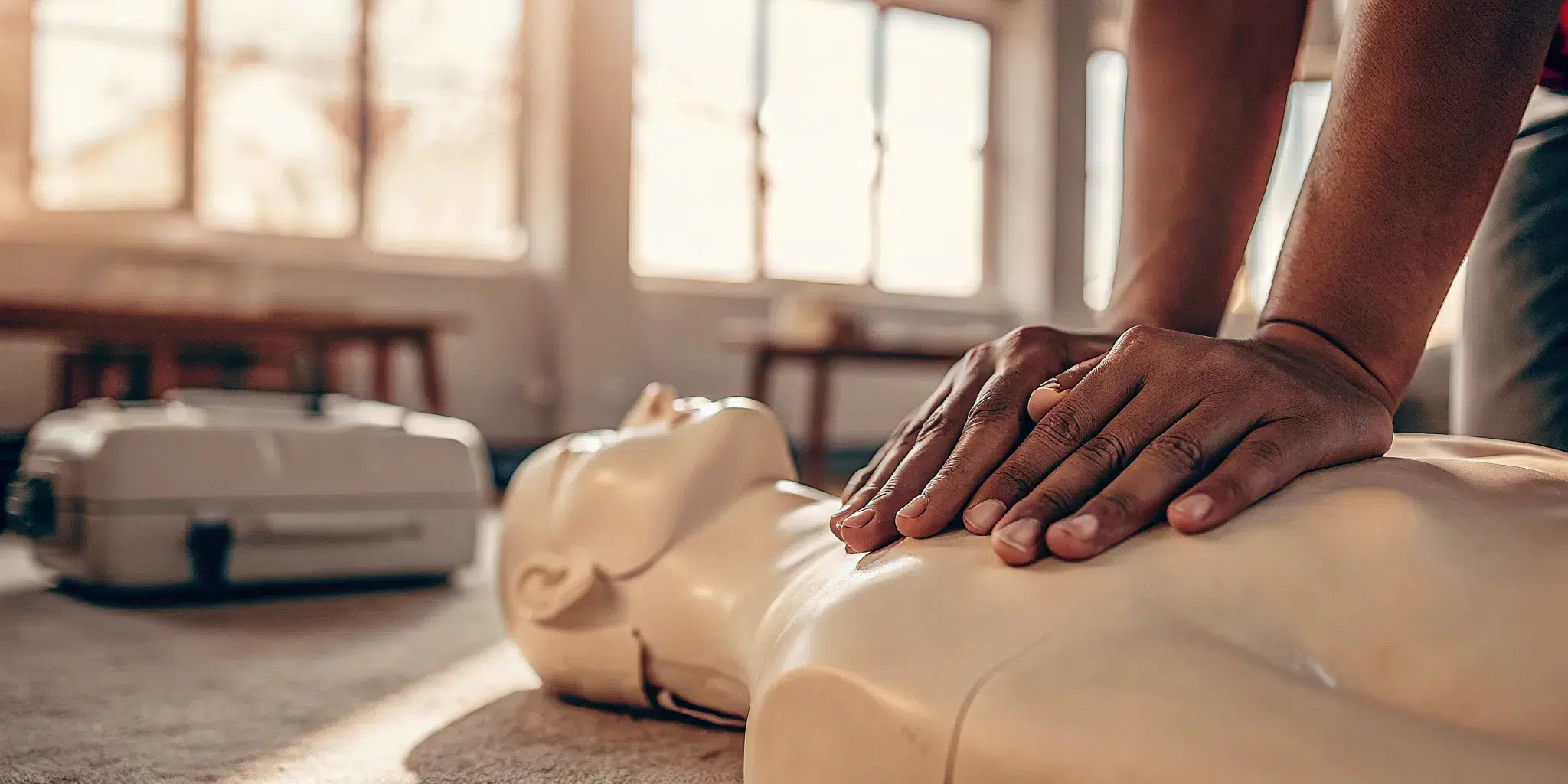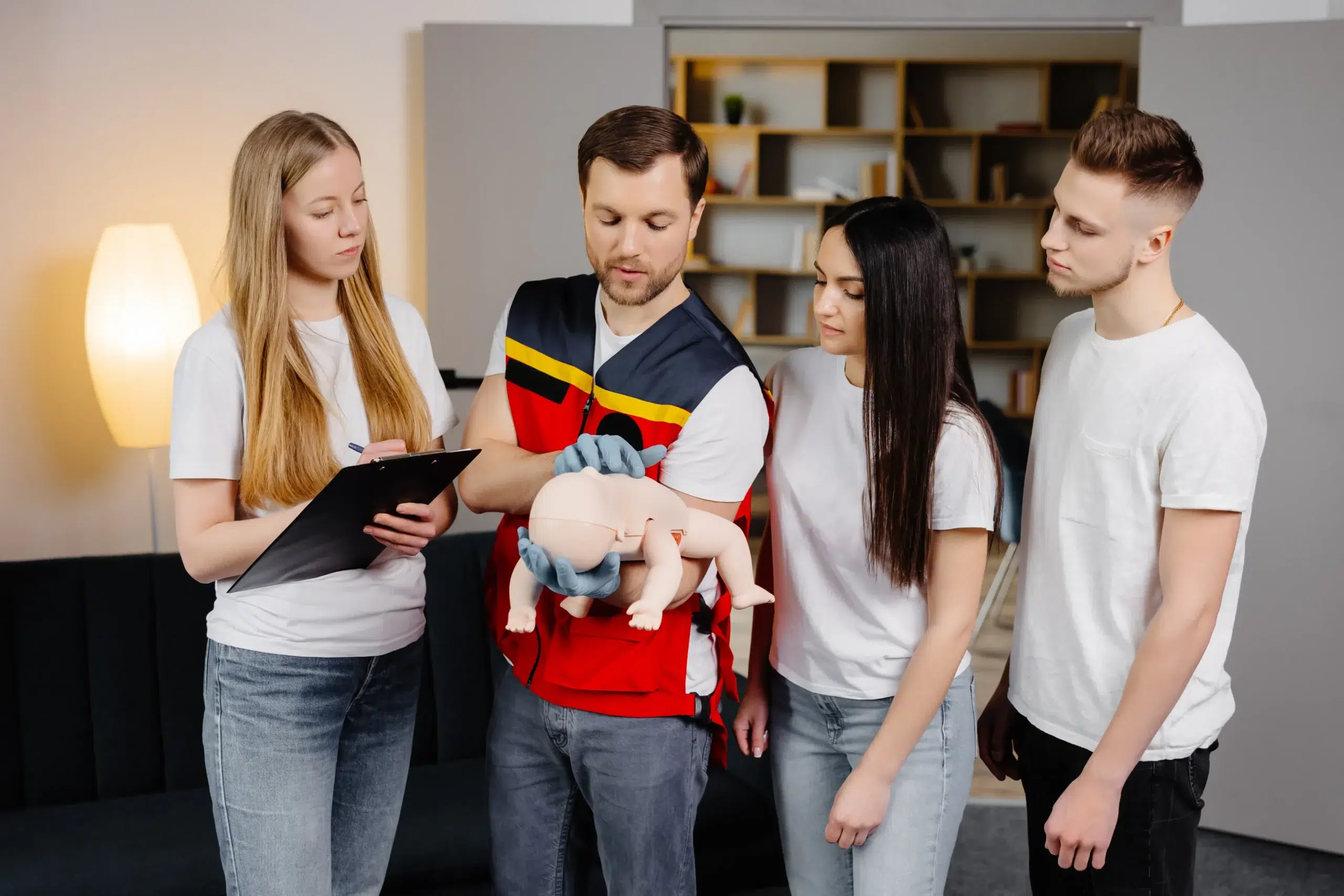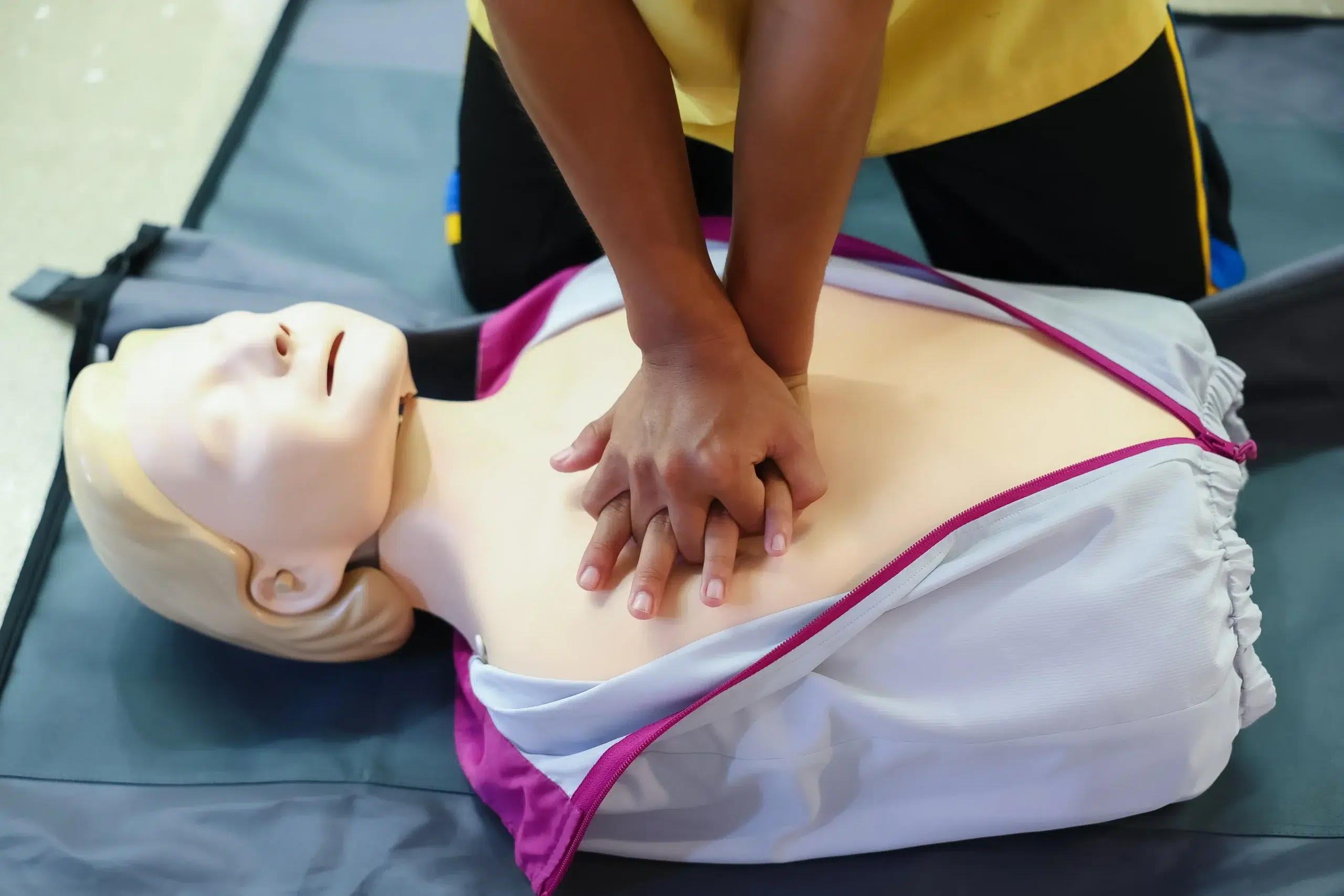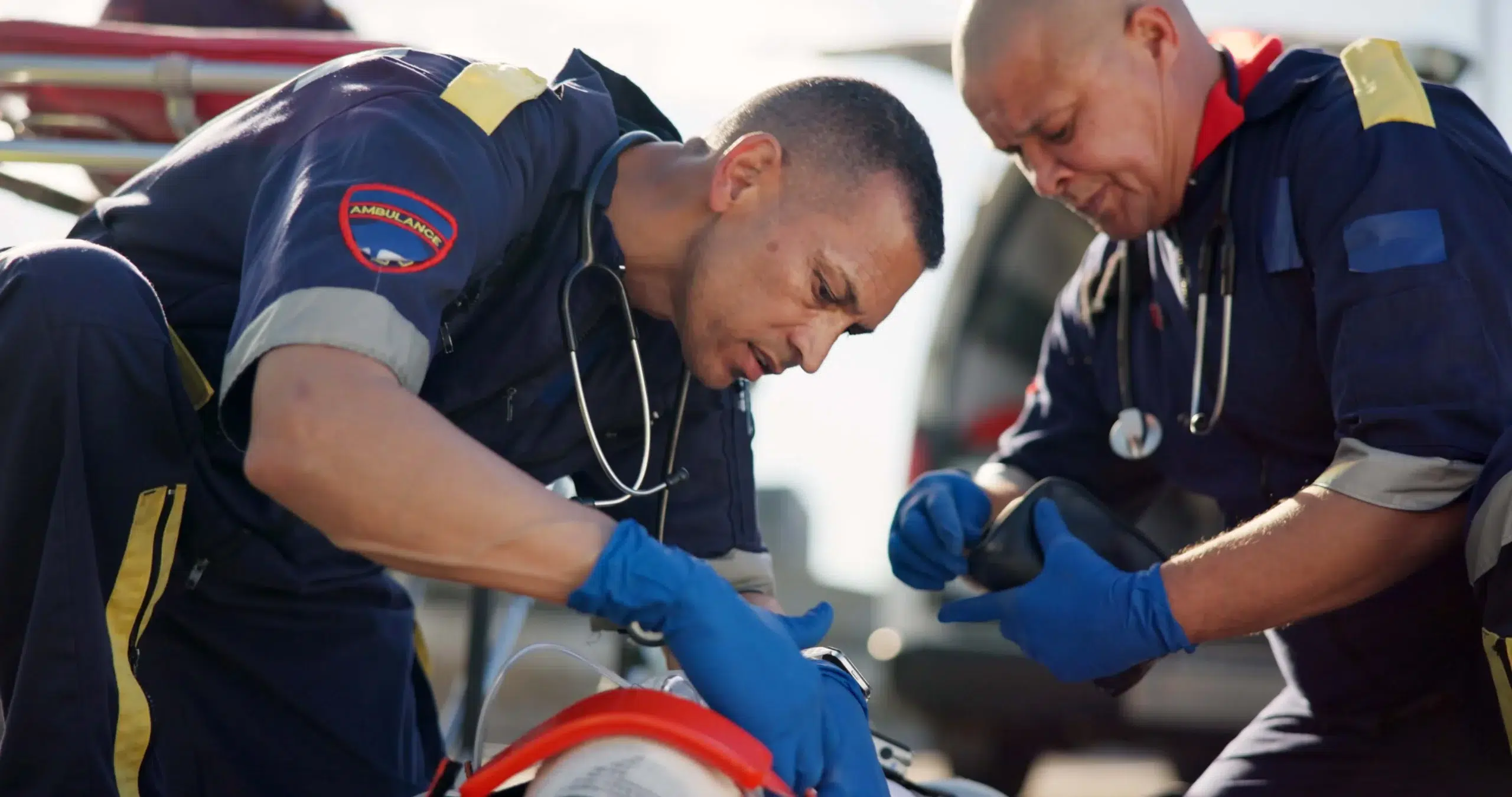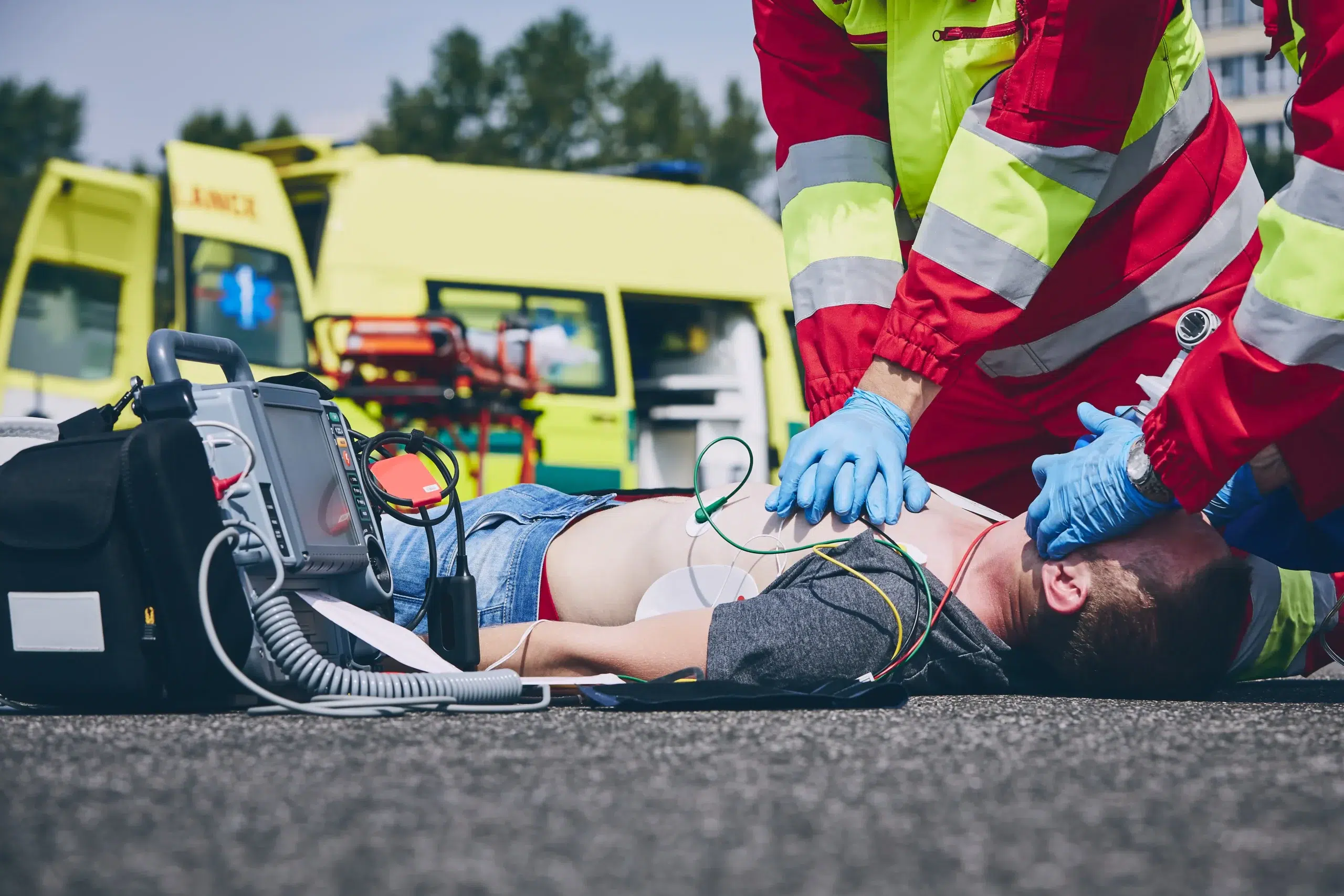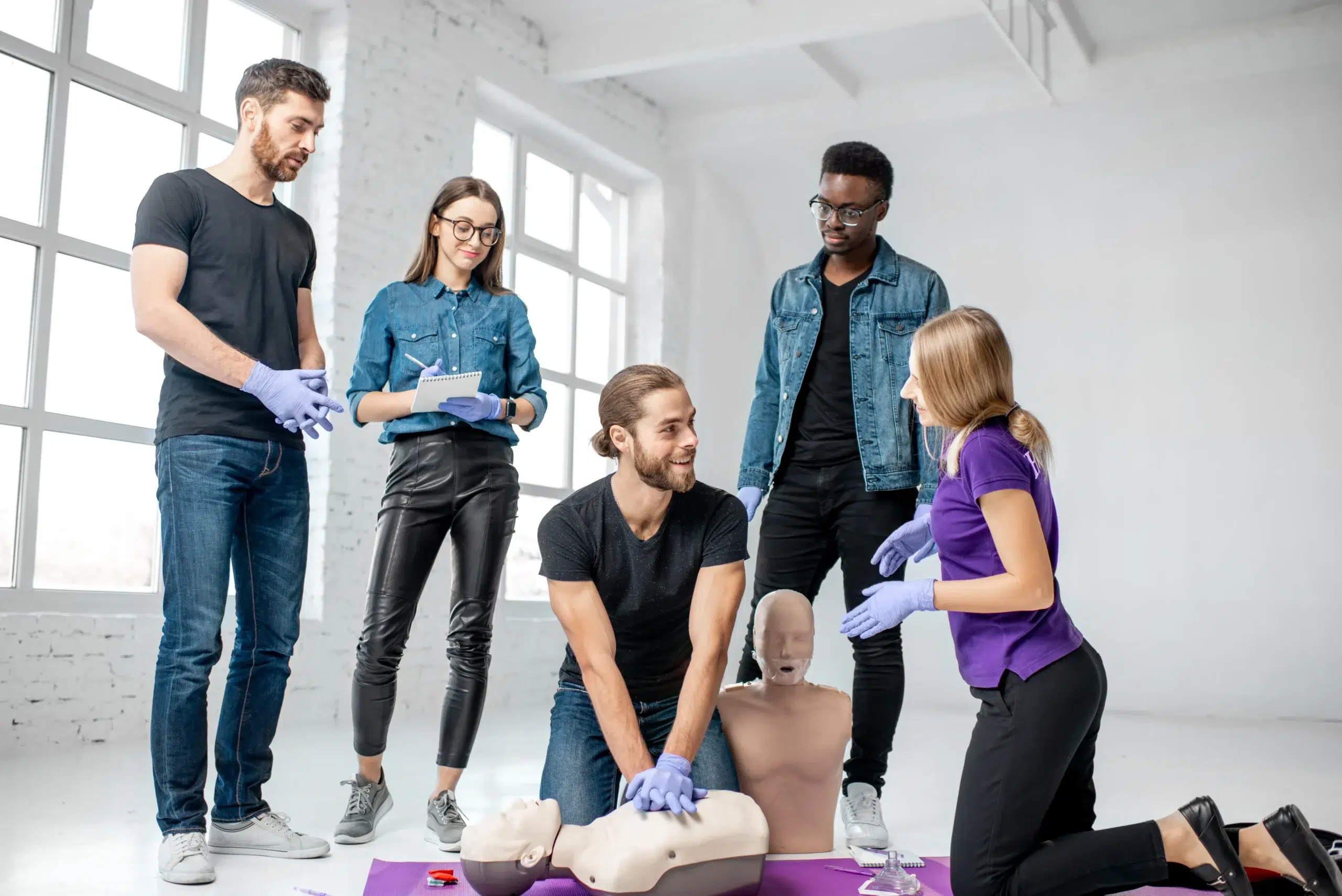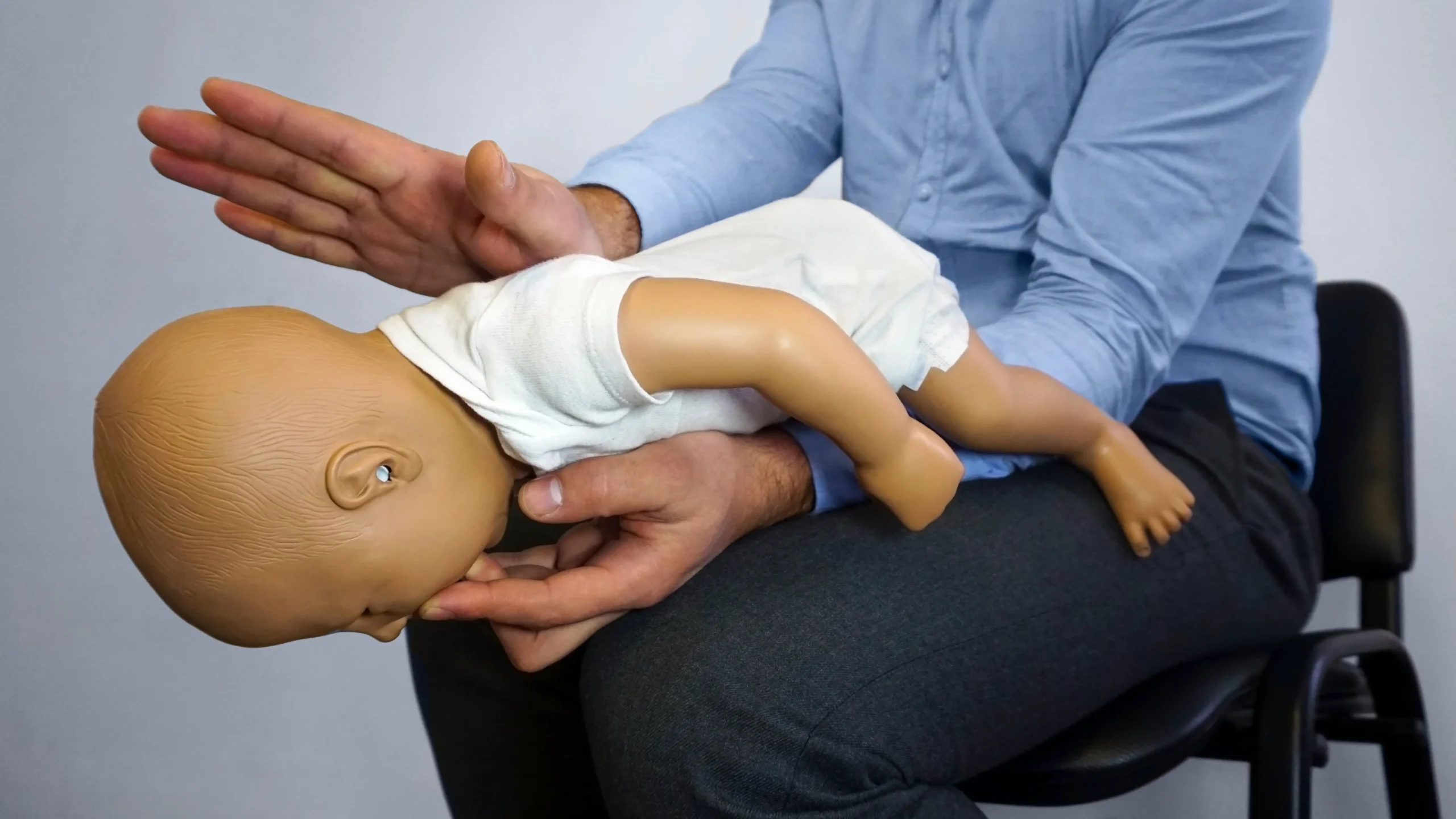Are you ready to be a lifesaver? BLS courses in Newark can equip you with the essential skills to respond confidently in medical emergencies. This guide covers everything from the basics of BLS certification to finding the right course provider in Newark for your needs. We’ll delve into the curriculum, explore the importance of hands-on training, and discuss the value of maintaining your certification. Whether you’re a healthcare professional or simply want to be prepared, this article will provide you with the knowledge and resources to take the next step.
Key Takeaways
- BLS certification empowers you to respond effectively to medical emergencies. Whether you’re a healthcare professional or not, these skills are invaluable in any setting. Find a course that fits your schedule and learning style.
- Choosing the right BLS course provider is essential for a positive learning experience. Look for AHA-certified training centers like Safety Training Seminars, known for their comprehensive curriculum, flexible scheduling, and low-price guarantee.
- Preparing for your BLS course is straightforward. Wear comfortable clothes, bring a notepad, and review any pre-course materials provided by your chosen training center. Contact the provider directly with any questions.
What are BLS Courses & Why are They Important?
Basic Life Support (BLS) courses equip healthcare providers and first responders with the skills to respond to life-threatening emergencies. These courses focus on high-quality CPR, using an AED, and working effectively as a team during emergencies. BLS teaches participants to recognize emergencies requiring immediate intervention, deliver effective chest compressions, and provide proper ventilation techniques. For healthcare professionals, BLS certification is often a job requirement. At Safety Training Seminars, we offer BLS courses in Newark designed to meet these standards.
The importance of BLS training can’t be overstated. It prepares individuals to act quickly and effectively in critical situations, potentially saving lives. The hands-on practice and simulated scenarios in BLS courses give participants the confidence to handle real emergencies, like cardiac arrest and respiratory distress. The Red Cross also highlights the value of this practical training in their BLS certification courses. BLS certification is typically valid for two years. This emphasizes the need for regular training and recertification to stay current with the latest guidelines and maintain the highest standard of care. We offer convenient CPR and First Aid certification courses to help you stay prepared.
Find Top BLS Course Providers in Newark
Finding the right BLS course provider is crucial for a positive and effective learning experience. Here are a few reputable options in Newark:
Safety Training Seminars
We offer a comprehensive range of courses, including AHA BLS, ACLS, PALS, CPR, and First Aid. With our low price guarantee and classes in over 60 cities, we’re committed to making high-quality training accessible. We also offer discounted group rates for businesses and organizations. Our convenient Newark location serves Fremont, Newark, and San Jose.
AHA-Certified Training Centers
Look for training centers specifically certified by the American Heart Association. These centers adhere to the AHA’s rigorous standards, ensuring you receive excellent instruction and a recognized certification. CPR Certification Newark is one example of a local provider offering AHA-certified BLS classes.
Local Hospitals & Medical Centers
Hospitals like Newark Beth Israel Medical Center often provide BLS courses through their training centers. These courses frequently cater to healthcare providers and may offer specialized training. Check with Newark Beth Israel Medical Center and other local hospitals for their course schedule.
CPR Newark
CPR Newark offers in-person BLS CPR and AED classes as an AHA-certified training site. Their focus on hands-on training can be beneficial for those who prefer practical application.
RWJBarnabas Health
RWJBarnabas Health’s CPR Training Center offers various healthcare provider classes, including ACLS. These courses are designed to enhance the skills of healthcare professionals, ensuring they’re prepared for emergencies.
Explore BLS Course Costs & Value in Newark
When considering a BLS course in Newark, understanding the typical costs and what’s included is essential for making informed decisions. Let’s break down the pricing structure and explore the value you receive.
Typical Pricing & Inclusions
BLS course fees in Newark generally range from $70 to $90. A standard BLS CPR and AED course, covering essential life support skills based on the 2015 American Heart Association (AHA) guidelines, typically costs around $70. These courses usually last about three hours. You can also find combined BLS CPR, AED, and First Aid training for approximately $90, offering a more comprehensive learning experience.
Discounts & Group Rates
Many training centers offer discounts for group bookings, a smart option for businesses or community organizations training multiple people. Safety Training Seminars provides group discounts, potentially lowering the per-person cost significantly.
Safety Training Seminars’ Low Price Guarantee
Safety Training Seminars offers a low price guarantee on its AHA-certified courses, including CPR, BLS, ACLS, PALS, and First Aid. This commitment to affordable training ensures you receive high-quality instruction at a competitive price. They also offer daily certification courses and student discounts, increasing accessibility for everyone.
Learn About BLS Course Formats & Duration
In-Person Training
In-person BLS training offers a hands-on learning experience ideal for people who learn best in interactive environments. You’ll work directly with certified instructors, ask questions in real-time, and practice skills on mannequins. These courses cover essential techniques based on the latest American Heart Association (AHA) guidelines, including single-rescuer and team BLS for adults, children, and infants. Safety Training Seminars offers in-person BLS courses in Newark, giving students the confidence to respond effectively during emergencies. The dynamic nature of in-person training allows for immediate feedback and personalized instruction.
Online & Blended Learning
If you need a flexible schedule, online and blended learning BLS courses might be a better fit. Blended learning typically combines online modules with an in-person skills session. This format lets you learn the cognitive material at your own pace and then demonstrate your skills to an instructor. The American Red Cross offers blended learning BLS certification courses. Fully online options may also be available, but confirm they meet AHA requirements if you need certification for your job.
Typical Course Length & Time Commitment
BLS course length depends on the format and provider. Instructor-led courses, whether in-person or online, generally take four to five hours to complete. Blended learning courses, which combine online modules and in-person skills sessions, often require three to four hours total. This typically includes one to two hours of online coursework and two to three hours of hands-on practice and assessment. Check with your chosen provider, like Safety Training Seminars, for specifics on course length and schedule. You can also find information on course schedules for our Newark location on our BLS course calendar.
Discover What a BLS Course Covers
This section outlines the core components of a BLS course, highlighting the skills you’ll gain, the hands-on practice you’ll experience, and the certification process. Understanding these elements will help you prepare for your training and appreciate the comprehensive nature of BLS.
Key BLS Skills
A Basic Life Support (BLS) course equips you with fundamental skills to respond effectively to cardiac arrest and other life-threatening emergencies. The curriculum, based on the latest 2020 American Heart Association (AHA) Guidelines, covers techniques for single-rescuer and team-based scenarios. You’ll learn how to assess a patient’s condition, perform high-quality chest compressions, deliver rescue breaths, and use an Automated External Defibrillator (AED). The course also addresses airway management, ventilation techniques, and the importance of recognizing and responding to various signs of respiratory distress. These skills are applicable to adults, children, and infants, ensuring you’re prepared for a range of emergency situations. For more information on related training, explore our CPR and First Aid certification courses.
Hands-on Practice
BLS courses aren’t just about theory; they emphasize hands-on practice to build confidence and proficiency. You’ll actively participate in simulated scenarios, practicing chest compressions, rescue breaths, and AED application on training manikins. This practical training is essential for developing muscle memory and mastering the coordination required for effective CPR. The hands-on approach ensures you can apply your knowledge confidently in a real emergency. If you’re looking for BLS courses in Newark, Safety Training Seminars offers numerous opportunities for this crucial hands-on experience.
Assessment & Certification
To earn your BLS certification, you’ll need to demonstrate competency in all the skills taught in the course. This typically involves a written exam and a practical skills test, where you’ll perform CPR and other BLS techniques in a simulated scenario. Upon successful completion, you’ll receive a BLS Provider Course Completion Card. This nationally recognized certification is valid for two years, after which you’ll need to renew it to maintain your skills and credentials.
Get Your BLS Certification: Validity & Renewal
How Long is BLS Certification Valid?
BLS certification is typically valid for two years. This timeframe is standard across most nationally recognized organizations, including the American Heart Association (AHA) and the American Red Cross. Knowing the validity period helps you plan and ensures you’re always prepared to provide crucial life-saving care. Check your BLS certification card for the specific expiration date.
Renew Your Certification
Before your BLS certification expires, you’ll need to take a recertification course. Recertification courses cover the latest updates to BLS guidelines and techniques, refreshing your skills and knowledge. This ensures you’re providing the most effective care in emergency situations. Providers like Safety Training Seminars offer recertification courses to make the process convenient. Contact us to learn more about our BLS courses in Newark.
Why Keep Your Certification Current?
Maintaining a current BLS certification is essential for several reasons. It demonstrates your commitment to providing high-quality care and ensures you’re prepared for emergencies. Many healthcare employers and professional organizations require current BLS certification. Renewing your certification keeps your skills sharp and helps you meet these requirements. Staying current allows you to continue making a difference in your community and potentially saving lives. Learn more about our commitment to affordable training with our low price guarantee.
Choose the Right BLS Course Provider in Newark
Finding the right BLS course provider is crucial for receiving high-quality training that prepares you for real-life emergencies. With several options in Newark, carefully evaluate potential providers to ensure they meet your needs and learning style.
Compare Providers
Start by researching different BLS course providers in Newark. Look for providers offering the American Heart Association (AHA) BLS Course, which is updated regularly to reflect the latest scientific guidelines and best practices. A good BLS course should cover single-rescuer and team BLS skills applicable in various settings, with a strong focus on high-quality CPR and effective team dynamics. Compare course content, schedules, and pricing to find a program that fits your budget and availability. Consider factors like class size and instructor experience. Smaller classes often allow for more personalized instruction and hands-on practice.
Questions to Ask Providers
Contact potential providers directly and ask specific questions. Inquire about the course curriculum, ensuring it covers essential topics like recognizing life-threatening emergencies, performing high-quality chest compressions, delivering appropriate ventilations, and using an AED. Ask about the instructors’ qualifications and experience teaching BLS. A knowledgeable and experienced instructor can significantly impact your learning. Ask about the course format, including the balance between classroom instruction and hands-on practice. Finally, inquire about any continuing education or refresher courses.
Safety Training Seminars: What Makes Us Different?
At Safety Training Seminars, we’re committed to providing accessible, high-quality AHA-certified courses, including BLS, ACLS, PALS, CPR, and First Aid. We understand cost can be a barrier, which is why we offer a low price guarantee. We also offer flexible options with discounted group rates to accommodate busy schedules. Our extended customer service hours (8 am to 10 pm daily) ensure you can always reach us. We’re proud to serve Newark, Fremont, and San Jose, CA, empowering individuals with life-saving skills.
Prepare for Your BLS Course
Getting ready for your BLS course doesn’t require a ton of prep, but a little planning is always helpful. Here’s what you should know before you arrive:
What You Need
The American Heart Association BLS (Basic Life Support) course teaches you to recognize emergencies that call for CPR. You’ll learn how to perform high-quality chest compressions, deliver proper ventilation (rescue breaths), and correctly use an AED. No prior medical knowledge is required to take a BLS course. If you’re a healthcare provider, check with your employer—some hospitals and clinics use a specific training program like RQI.
Recommended Pre-Course Study
While pre-course study isn’t mandatory for initial BLS certification, reviewing the basics can build your confidence. Many providers, including Safety Training Seminars, offer resources like study guides or practice tests. Check with your chosen provider to see what they suggest. For recertification courses, you should have a current BLS Provider card. These courses often cover team dynamics, single-rescuer CPR, AED use, and immediate post-cardiac arrest care, building on existing knowledge.
What to Bring
For in-person BLS training, wear comfortable clothing, as you’ll be actively practicing skills. Bring your BLS Provider manual if you have one, and something to take notes with. Your provider will supply all the necessary equipment, including mannequins and AED trainers. If you’re taking a blended learning course (partially online), complete the online portion before your in-person skills session. Contact Safety Training Seminars if you have questions about our BLS courses in Newark. We’re happy to help!
BLS Course FAQs
This section answers common questions about BLS courses, addressing concerns about difficulty, success, and post-course support.
Common Questions
One of the most frequent questions is, what exactly is a BLS course? The American Heart Association BLS (Basic Life Support) CPR class trains participants to recognize emergencies requiring CPR. You’ll learn how to perform high-quality chest compressions, deliver proper ventilation, and correctly use an AED. These courses prepare you to respond effectively until professional medical services arrive. Our BLS courses in Newark cover all these essential skills.
Course Difficulty & Success
Many people wonder if a BLS course is difficult. Our BLS courses are designed for success, using top-notch, in-person instruction that meets OSHA standards. We focus on practical skills and team dynamics, providing hands-on practice with 1-person CPR and AED use. You’ll also learn immediate post-cardiac arrest care, building your confidence to handle real-world situations. Learn more about our CPR and First Aid certification.
Post-Course Support
We believe learning doesn’t end when the course concludes. We offer various courses, including ACLS, PALS, and First Aid, to further develop your skills. Our BLS course adheres to the latest American Heart Association guidelines, ensuring you receive the most up-to-date training. We also offer discounted group classes and a low price guarantee. Contact us to learn more about our comprehensive training and continued support.
How BLS Training Impacts Healthcare & Community Safety
BLS in Healthcare Settings
BLS training is fundamental for healthcare providers. It equips doctors, nurses, and other medical professionals with the skills to respond effectively to emergencies. These courses cover core life support techniques, based on the latest American Heart Association (AHA) guidelines, for adults, children, and infants. BLS certification emphasizes both single-rescuer and team-based resuscitation scenarios, ensuring healthcare teams can work together seamlessly during critical moments. This coordinated approach improves patient outcomes and creates a more effective response system within healthcare facilities. For healthcare providers in Newark seeking BLS certification or recertification, you can explore available courses through RWJBarnabas Health.
BLS for Non-Medical Professionals
CPR training isn’t just for medical professionals; it’s a valuable skill for everyone. CPR Certification Newark highlights the importance of BLS training for personal safety and meeting professional requirements across diverse fields. Whether you work in education, construction, or another industry, BLS training empowers you to act confidently in emergencies. Knowing how to perform CPR and provide basic life support can make a profound difference in the moments before professional help arrives. This preparedness not only protects individuals but also contributes to safer workplaces and communities.
Community Benefits of BLS
BLS training creates a ripple effect of positive change within communities. Equipping individuals with these life-saving skills strengthens the chain of survival and improves outcomes in emergencies. The American Red Cross emphasizes the importance of widespread BLS training, particularly for professions like healthcare, law enforcement, and firefighting. When more people in a community are trained in BLS, it fosters a culture of preparedness and enhances overall safety. This network of trained responders can significantly reduce the impact of emergencies, offering immediate assistance while waiting for professional responders. You can find convenient and affordable BLS courses in Newark at Safety Training Seminars, contributing to a safer community for everyone.
Related Articles
- Why CPR is Important in Healthcare – Newark CPR Classes
- BLS CPR Classes in Newark, CA – Newark CPR Classes
- Workplace CPR and First-Aid Training Saves Lives
- The Importance of CPR in Saving Lives – Newark CPR Classes
- Blog – CPR, BLS, ACLS, PALS, & First-aid Training – Newark CPR Classes
Frequently Asked Questions
What does BLS certification cover?
A BLS certification course teaches you the skills to perform high-quality CPR for adults, children, and infants, how to use an AED, and how to work effectively as a team during a medical emergency. It focuses on the core skills needed to respond to life-threatening situations.
How much does a BLS course cost in Newark?
BLS course costs in Newark typically range from $70 to $90. This price usually includes the instruction, materials, and certification card. Safety Training Seminars offers a low price guarantee, so you can feel confident you’re getting a good value. We also offer discounts for group bookings, which can significantly reduce the cost per person.
How long does it take to get BLS certified?
The time commitment for a BLS course depends on the format. In-person courses typically take four to five hours to complete. Blended learning courses, which combine online modules and in-person skills sessions, usually require three to four hours total.
How long is my BLS certification valid?
BLS certification is generally valid for two years from the date of completion. It’s important to renew your certification before it expires to maintain your skills and stay up-to-date with the latest guidelines.
What if I don’t have any medical background? Can I still take a BLS course?
Absolutely! No prior medical experience is necessary to take a BLS course. The courses are designed to teach you everything you need to know, from recognizing the signs of a medical emergency to performing CPR and using an AED.
This article was written for free by MEGA SEO.
